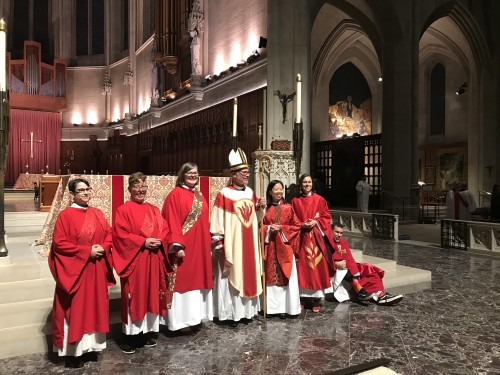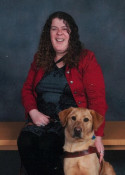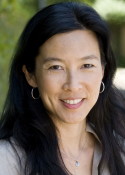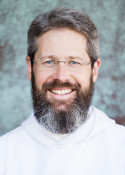From the Rector
May the Cycle be Broken
You may have heard this story before, about the conversion of the 20th century philosopher Rene Girard. Even if you know it, I believe it bears hearing again as we experience a week like this one, of a world teetering on the precipice of war.
Trained as an historian and literary critic, Girard was a professor for decades at several universities, most notably Johns Hopkins and Stanford. Much of the course of his study and philosophical work was centered on mimetic desire, specifically mimetic violence. Mimetic acts are ones in which we mirror the behavior that we receive from another.
With mimetic violence we return the violence that we receive, and if unchecked, this mimesis forms a never-ending cycle in which violence is met by revenge, which is returned, endlessly. One of the initial environments that Girard studied was in prisons, where he observed prisoners and their guards mirroring violence towards one another over and over again. But as an historian he saw this cycle repeat for tens of thousands of years.
The conversion experience for Girard came when he deeply encountered the Christ event. In the life, violent death, and resurrection of Jesus the Christ, Girard recognized something unusual in the human experience––the capacity and willingness to absorb violence without choosing to visit that violence upon someone else. For him, this human and divine act had and has the potential to change the course of human history––if we are willing to follow it.
Now some say that since Girard was raised in southern France in the Roman Catholic tradition, that the word conversion is inaccurate. I find conversion a compelling description of Girard’s shift as an adult because though he was raised in the context of cultural Christianity, his own revelation of the Christ event fundamentally changed the way he understood the world around him. (if you are interested in reading some of his work in this area I’d recommend Things Hidden Since the Foundation of the World, or the theologian James Allison’s stunning book Raising Abel)
I’ve been remembering Rene Girard’s work this week as President Trump, on behalf of the United States of America, assassinated Major General Qassim Suleimani of Iran. President Trump was reportedly responding to intelligence that Gen. Suleimani was in the process of endangering American lives, and so President Trump ordered drone strikes to kill him outside of the Bahgdad airport. As of the writing of these words, Iran has responded by bombing U.S. military camps in Iraq, and the world remains on high alert for what might come next.
The reason why Rene Girard’s work was on my heart and mind this week was crystallized in an compelling Op-Ed piece in the New York Times that Geraldine Brooks wrote today. Brooks was a long-time correspondent for the Wall Street Journal in the Middle East in the 1980s and 1990s and had a first hand understanding of the retributive violence that has been present between our two countries for decades.
She walks through the decades of conflict, from the downing of the Iran Air flight 655 by the USS Vincennes to an attempted pipe bombing in San Diego and more. Along the way, each side has sought military and economic retribution, and, unless different decisions are made, this cycle of mimetic violence will continue.
To be clear, Jesus was not teaching about geo-politics in 1st century Palestine. And yet, it seems to me that every chieftain, queen, king, prime minister, emperor and president who claims to follow the way of the Christ has had a phenomenally challenging task of responding to a chaotic and often dangerous world while following the precepts of a king who claimed no army.
But it is abundantly clear to me after following the funeral process in Iran, and seeing the fervor that has arisen in parts of this country, that there is only one direction that mimetic violence follows, which is around and around and around.
That is, unless one party is courageous enough to break the cycle, and find the third way forward, neither flight nor fight, but a willingness to realize our common humanity, recognize the pain that both countries have felt, and forgive one another for the real suffering that we each have inflicted.
It is not easy, but what was the revelation that changed Rene Girard’s life decades ago is that this way forward does indeed exist, if we are willing to take it.
Peace,
Phil+
From the Deacon
Deacons in the Episcopal Church

Dani Gabriel is our new Deacon. This essay is a first in a weekly series of articles exploring the call and ministry of Deacons in the Episcopal Church
I have been living with Jesus for a while now. My symptoms are an incredible, growing love for all people who have been pushed out into the margins; an overwhelming love for people on the borders of countries and communities; a love for people like myself who ARE the borders, between “normal” and “queer,” between acceptable and outcast; and a love of those who would reach out and touch the fabric of Jesus’ clothes, bold enough to seek healing even though they were thrown away by their families and communities. The effects of Jesus also include a strange compulsion to get to know the people I’m afraid of: the comfortable, the respectable, those invested in the status quo. I have tried staying in bed. I have tried staying long hours at work. I have tried shopping and I have tried special diets and I have tried various herbal and pharmaceutical treatments but Jesus just will not go away.
He has led me to a place I had absolutely no intention of ever setting foot in: the Episcopal Church. And he has led me right into the middle of this thing called “diakonia,” serving God in serving others. He has introduced me to the order of deacons, ordained to bring the church within the walls and the church outside of the walls together. He has compelled me to embark on a crazy journey toward ordination, toward embodying the kind of love and service he taught us.
I can’t say I’m universally pleased with this turn of events. Living with Jesus can be tough. I’m up at all hours. I’m constantly doing things that terrify me. But Jesus finds me at the crossroads between all the things that make me feel cut off from God and cut out of relationships. Jesus shows up where all of the violence I have experienced has damaged me and all the love I have experienced has held me. Jesus saves me from the certainty that all is lost and replaces it with the certainty that no one, none of us, is ever lost.
The first thing I was told to do when I expressed that I felt I might be called to be ordained a deacon was read the section in the Book of Common Prayer (the book that shapes our piety and practice) on ordination. Not just ordination of a deacon, but ordination of a deacon, a priest, and a bishop. The idea was that I would get a sense of the different ordained roles in the church and how I might fit into that. I think it was also meant to impress upon me the seriousness of what I was suggesting. When you read the ordination rites you can’t escape the fact that these are vows. This isn’t the signing of a contract, this is pledging a lifetime commitment. You also do get a clear picture of the orders: bishops coordinate the diocese and administer sacraments, priests shepherd the flock and administer the sacraments, deacons assist in the sacraments and connect the church with the world outside and serve “the least of these.”
In the consecration the Bishop says:
Make her/him/them, O Lord, modest and humble, strong and constant, to observe the discipline of Christ. Let her/his/their life and teaching so reflect your commandments, that through her many may come to know you and love you. As your Son came not to be served but to serve, may this deacon share in Christ’s service, and come to the unending glory of her who, with you and the Holy Spirit, lives and reigns, one God, forever and ever.
I knew when I first read the Ordination of a Deacon in the Book of Common Prayer that I felt called to be one. I felt like my name was written all over the pages. I also felt a growing sense of apprehension that Jesus was walking me into something much bigger and more difficult than I had been imagining. In the rite the ordinand is asked:
My sister/brother/sibling, every Christian is called to follow Jesus Christ, serving God the Father, through the power of the Holy Spirit. God now calls you to a special ministry of servanthood directly under your bishop. In the name of Jesus Christ, you are to serve all people, particularly the poor, the weak, the sick, and the lonely.
As a deacon in the Church, you are to study the Holy Scriptures, to seek nourishment from them, and to model your life upon them. You are to make Christ and his redemptive love known, by your word and example, to those among whom you live, and work, and worship. You are to interpret to the Church the needs, concerns, and hopes of the world. You are to assist the bishop and priests in public worship and in the ministration of God’s Word and Sacraments, and you are to carry out other duties assigned to you from time to time. At all times, your life and teaching are to show Christ’s people that in serving the helpless they are serving Christ himself.
“My sister/brother/sibling, do you believe that you are truly called by God and his Church to the life and work of a deacon?”
I hope to have the opportunity to answer “yes.” The deacons I have met along this journey have kept me inspired – with their ministries, their humor, and their love of Christ. They have a variety of approaches and perspectives. Their stories are divergent and singular. They are each unique and yet united in their call. I see deacons taking a critical role in widening the sphere of the church so that there is more and more room in it. I see deacons working toward a day when there is no “in” the church and “out” of the church, there’s just the all-powerful presence of God, everywhere. The buildings are beautiful, but church does not depend on the buildings. Our congregations are loving communities, but the Body of Christ extends far beyond them. Making church, to me, looks like working for justice and peace for all people. And that’s what deacons are here to facilitate, bringing all the baptized into the project. It is holy work, and it is work without which the church is not going to survive.
In a time when the church is keenly aware of the need to be relevant to the world today, the order of deacons is here to provide a model for how we might do that. Deacons are all over the Episcopal Church, proclaiming the Gospel, working with youth, building bicycles for folks that don’t have transportation, organizing food ministries and protests. Deacons are advocates, motivators, and innovators. They invite the homeless people on the corner inside. They preach truths that can be inconvenient. At every service, they send the people out into the world to serve the Lord.
There is no church separate from the world. There are no people who deserve membership and people who do not. Every church that dismisses the poor from the doorstep so they won’t disturb worship has entirely missed the point of Jesus’ message. And we need people to remind us of that. Church is beautiful. The stained glass paints the walls, the music floats, your friends are at the table with you at coffee hour. Who wouldn’t want to stay there? In some ways, I do too. But Jesus did not show up here on earth or in my life to make anyone comfortable.
Two books that give great context for conversations about deacons and the diaconate are “Unexpected Consequences: The Diaconate Renewed” by Suzanne Watson Epting and “Many Servants: an Introduction to Deacons.” by Ormonde Plater. The role of a deacon has two-thousand years of history, but in other ways it is changing and transforming today. Pretty much everyone in Western culture knows what a priest is, even if they have very little familiarity with Christianity. A lot of people don’t have a clue what a deacon is, even within the Episcopal Church. If you ask everyone in the pews on a Sunday what a deacon is, you’ll get a variety of different answers. Plenty of people are only familiar with “transitional” deacons, and think all deacons go on to become priests. The invisibility of deacons, and the confusion about what they do, limits the growth of the order, and the growth of the church which it is their task to widen.
I want more people to know about the transformative work of deacons. In this series of interviews I will share an exploration of the variety of ways the diaconate expresses itself in the Episcopal Church. I have had the privilege of interviewing deacons from around the country (and Cuba!) as well as our Presiding Bishop about their thoughts on the diaconate. What they told me has inspired me as I continue on my own journey, and I hope will inspire you on yours. Who knows, maybe the spirit is calling you as well!
– Dani Gabriel
Vestry Elections
Last Call for Elections

2020 is a big year for elections. Luckily, the All Souls election for Vestry and Deanery are not quite as crucial as the national election. However, it will be a big year for breaking ground on our affordable housing for seniors, making strategic changes to our facilities through our capital campaign and calling a new associate rector to move with us into our ministry together in this next decade.
Four All Soulsians have put themselves forward to be considered for Vestry for this 3 year term. Now is the last opportunity for nominations to be part of the election at our Annual Meeting, as this is the mechanism for nominations from the floor. Consider nominating yourself or someone else––with their permission––if you would like to be part of the election. The main requirements for vestry are that you are currently pledging and have been a member for at least 2 years.
If Vestry feels like too big of a commitment for you at this point, perhaps you would like to serve as a delegate to Deanery. This is a 2 year term where you serve as an alternate the first year. The second year, you would be expected to attend 4 meetings of the local deanery on Thursdays. These gatherings are a great way to learn more about our wider episcopal community and how All Souls plays a part.
If you have any questions or would like to put your name in for either vestry or as a deanery delegate, please contact Erin Horne, Junior Warden at erinhhorne@yahoo.com or (206) 850-8886 in the next week.
Adult Formation class
The Body of Christ: Health and Healing in the New Year
 Most of us live with our minds/consciousness thousands of miles away from our bodies. Yet as a container for Spirit, are our bodies not a direct expression of the Christ essence? Why was it important for God to be embodied in human form, and what lessons might we learn from Jesus by example? What does it mean experientially for the body to be a temple, or for us to be the light of the world?
Most of us live with our minds/consciousness thousands of miles away from our bodies. Yet as a container for Spirit, are our bodies not a direct expression of the Christ essence? Why was it important for God to be embodied in human form, and what lessons might we learn from Jesus by example? What does it mean experientially for the body to be a temple, or for us to be the light of the world?
In this 3-week class, beginning January 5, 2020, Father Phil and parishioner Dr. Cynthia Li, MD, will explore these questions through stories, Scripture, contemporary science, and ancient healing arts. We will also introduce simple embodied practices to open ourselves to the healing power of the God who is everywhere, the God who heals hearts and minds, and also bodies.
– Cynthia Li
Calling All Forms!
As you put away your Christmas things, please bring back your Advent wreath forms! You can drop them in a basket in the narthex. We reuse them year after year, and if you bring them back, then we don’t have to buy more in advance of next year’s Advent Festival. Thank you!!
Emmaus Groups
If you are interested in joining a small group here at church, Emmaus Groups might be just the thing. Emmaus Groups are spiritual journeying groups that meet every-other-week for 16 week “semesters”. These groups started this past fall when we had one group of married couples and two groups of women meeting. This winter the married couples group is continuing but is full (we could start another if enough couples wanted to meet!), then there is a men’s group that will pick back up (they met as a pilot group for the first time last spring), and finally the women’s groups that have been meeting have some folks staying and some leaving, which leaves a lot of space for either new groups (single-gender or mixed-gender) to start or for folks to be added to the existing groups. If any of this sounds interesting, get in touch with Emily Hansen Curran (emily@allsoulsparish.org) and we will work to get you into a group that makes sense for you. Deadline to join for this coming semester is January 19th.
Annual Meeting – Save the Date, January 26th!
Please come together for our Annual Meeting: a time to hear about the budget, to listen to stories from this past year and many years past, and elect our new leadership. Please bring food to share! Childcare will be available on the courtyard; Sunday School does not meet this day.




